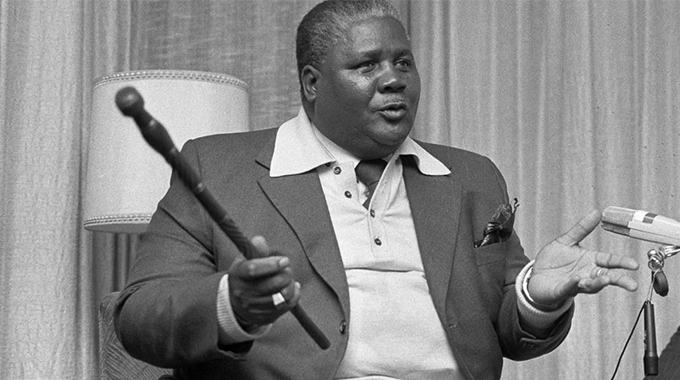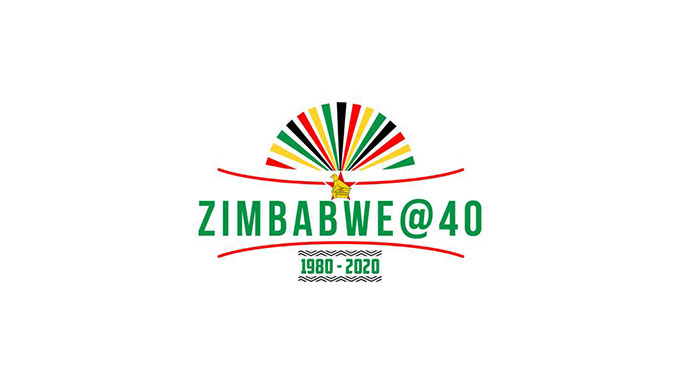
The Sunday News

Obert Mpofu
This is a continuation of the instalment published last week in this paper.
It is also believed that Dr Nkomo’s decision to take part in Lancaster Conference was largely driven by the advice he was receiving from some Whites who were perceived to be misleading him to political oblivion.
Therefore, Zapu’s participation in the Lancaster Conference seemed more politically correct in the eyes of those in the political strata, but the military front had wide resentments about participation in the Lancaster.
Moreover, the exclusion of Russia as an interested stakeholder in the transitional roadmap set at the Lancaster Conference was indicative of Britain and America’s monopolistic determination to shape Zimbabwe’s independence politics.
Key African countries which had assisted both Zanla and ZPRA in the execution of the armed struggle were excluded in the Lancaster arrangement.
This exposed Dr Nkomo to more isolation considering his feared links to Russia. Automatically, this placed Zanu at an advantageous position, though Cde Tongogara was on record for recommending a united approach to engaging the colonial powers whose strategy to divide the PF seemed well-calculated.
Dr Nkomo decided to participate in the Lancaster Conference against the advice which he had received from Zapu’s lifelong Russian allies.
Dr Nkomo’s decision also served as a swipe to Zipra commanders’ instruction to him not to participate in the Lancaster talks.

The friction between the military and Dr Nkomo’s political decision precipitated more internal contradictions between the combatant forces and those at the height of political decision-making. In a way, the military remained radically defiant to negotiation while Dr Nkomo became a victim of the political limelight which was constructed for him since the Geneva Conference days. This explains why in the fast-tracked flow of events towards the 1980 election Dr Nkomo was isolated since his party was linked to potential post-independence Soviet hegemony which threatened the interests of Anglo-American powers.
Some in the military ranks especially the Late Lookout Masuku felt betrayed when Dr Nkomo decided to take part in the Lancaster Conference which was perceived as a self-created onslaught for Zapu.
It is also alleged that Cde Josiah Tongogara’s insistence on the need to maintain the PF compelled Dr Nkomo’s dependence on collective negotiation. As such, his close allies in ZPRA viewed Dr Nkomo as more dependent on the advice of outsiders than his close military staff and Russian counterparts. As warned by the Russians and his top military men, it turned out that Dr Nkomo’s Lancaster participation lacked strategic calculation. All forces at play during this conference were working to his disadvantage.
Zanu reconvened after the Lancaster and broke-away from the PF arrangement ahead of the 1980 election. The Lancaster Conference only managed to produce a Constitution which determined the path for universal suffrage and the subsequent independence of Zimbabwe.
According to our former colonisers, the major achievement of the Lancaster Conference in preserving the interests of Britain and America was the outwitting of Dr Nkomo. The second goal of this conference was to reproduce the West’s hegemony through the divide and rule strategy which left the PF fragmented and fragile. In the 1980 election, Zanu had a majority of 57 seats of the 80 Common roll seats. Zapu only had 20 seats mainly in the Midlands and Matabeleland provinces. However, Zapu was invited into a coalition Government.
At that particular point, it was clear that Zapu had lost absolute national traction as its political presence was only felt more in Matabeleland and Midlands. The regional redefinition of the nationalist movements outside their erstwhile PF arrangement of 1976 facilitated the possibilities for future conflict. In no time the post-independence elation was terminated through the Gukurahundi era. As a result, this marked neo-colonial triumph. The Cde Mugabe-led Zanu had not only acquired diplomatic enabled legitimacy, but it had also proved to be a popular political party.
Once again, I should reiterate Nkomo’s profound role to my political path and what his contribution to my life means 40 years after independence. This reflection comes against the background of the impending 40th Independence Day Celebrations to be held in Bulawayo.
In connecting the redemptive role of Father Zimbabwe to the significance of the Uhuru celebrations in Bulawayo, I should emphasise that this is the time to remember our shared role in defending the wealth of our nation. Our land had been looted, mineral wealth plundered and our humanity desecrated to ensure that we only looked at ourselves as objects of labour for colonial capital. We were also reduced to subjects of colonial cultures and beliefs systems at the expense of our God-given norms and cultural values. Therefore, when Nkomo conceptualised the roadmap to African colonial resistance his status of fatherhood to our right to be free was established.
At the level of Black rehumanisation agenda, Nkomo’s Zapu and ZPRA became ideological proxies of deracialising humanity and breaking the barriers of man-made prejudices. Therefore, Nkomo’s epoch-making contribution to the struggle for liberation signified the re-ordering of society towards equality. He challenged the racially defined terms of power and being. The creed of the struggle as defined by Nkomo and his imaginations for a free Zimbabwe entailed elimination the racial degeneracies and the privileges of the colonial regime. At the same time, Zapu’s nationwide mobilisation capacity became the conduit to dismantle ethnic essentialism which the colonialist regime effectively deployed in the interest of the divide and rule strategy.
Beyond my emotive and ideological connection to Nkomo’s cause, I met him for the first time in August 1975 during the Victoria-Falls Peace Talks.
Meeting Nkomo in person in 1975 at this most decisive point of our struggle was quite fulfilling to my political journey which had begun in 1967. I was among the cadres who met Nkomo in 1975 in August. This critical point of peace negotiation was the initial roadmap to the détente period. Zapu, Zanu, Frolizi and Abel Muzorewa’s United African National Congress (UANC) were represented at this conference.
The Late Rhodesian leader Ian Smith was the head of this political dialogue. The conference aimed at soliciting a middle ground for the nationalists the Smith regime to end the war.
No logical consensus was reached at this conference, but for me, the most important thing was getting the direct opportunity to meet with this man whose fatherhood to the struggle motivated us in the trenches.
Therefore, seeing him for the first time in Victoria-Fall was quite fulfilling. The platform marked a historic turn in the history of our fight for liberation. It signalled how much the colonialists were conceding to our determined fight for freedom.
Geneva Conference: Nkomo’s Militant Diplomacy Exposed
A year after the Victoria-Falls Talks Nkomo’s next dialogue venture was the Geneva Conference of October 1976. The main objective of the Geneva Conference was to set the transitional modalities from the Smith regime towards a nationalist-led government. The issue of constitutional reform was of higher priority in the agenda of this conference. During the Geneva conference, Nkomo was the principal representative of the nationalist demands and submissions. This conference earned him a high diplomatic standing as it marked a critical point in the internationalisation of Zimbabwe’s liberation from colonialism.
Other key delegates at the conference included Robert Mugabe of Zanu, James Chikerema of Frolizi, and Abel Muzorewa of UANC. These nationalist political leaders shared common ground on their demand for independence, but this doesn’t erase the fact that each one of them had competing interests to secure the respective relevance of their political organisations. The platform offered an opportunity for the nationalists to market their contested interests and market their respective approaches to the decolonisation question. This platform also aided the devising of imperialist machinations to create acute divisions within the nationalists. Regardless of their already existent points of dissent, Zapu and Zanu formed the “Patriotic Front” (PF). Through the Patriotic Front, Nkomo and Mugabe resolved to suspend their differences in advancing a single and solid approach to making transitional demands to Britain which was brokering the negotiations.
The PF also acquired its legitimacy from the OAU by July 1977 following the 14th OAU Ordinary Session of Heads of State. The resolve to have the Patriotic Front as an anti-colonial organ of transitional negotiation is also noted after independence in response to the neo-colonial influences to the post-independence violence which threatened the foundational premise of national unity which the PF was established upon. Therefore, the philosophy of national unity which framed the personality of Nkomo’s leadership style is not only noted in 1987, but it is a common feature of his leadership character which can be traced throughout the liberation struggle. To a greater extent, the establishment of the PF and its role as a negotiation vehicle for Zapu and Zanu depict how Nkomo’s leadership was not primarily, pan-Africanist, instead, Nkomo acquitted himself as an internationalist.
During the Geneva Conference Nkomo’s consistency on the One Man, One Vote principle became the central agenda of the negotiation.
This transitional requisite which he mainly called for was in sync with the anticipated goal of the disenfranchised masses.
This proves that even though at a military level the nationalists had outmanoeuvred the Rhodesian Front (RF) there was room for diplomatic engagement. Again, this evidences beyond measure that Nkomo was both a militant and diplomatic forerunner of the struggle. Beyond military acumen, Nkomo also used diplomacy as an agent for political engagement.
At this point, he was willing to engage in a colonially set dialogue space and negotiate peace though he had the means to pursue robust military action. The period between 1975 and 1979 was reflective of Joshua Nkomo and other nationalists’ tilting towards diplomacy.
However, he was vocal in dismissing the idea of propositional representation which was being mainly advanced in favour of the imperialists.
This explains why Nkomo and Mugabe emerged united through the Geneva talks didn’t yield the anticipated political transitional result.
Also noteworthy is that the PF was short-lived as a result of the manifestation of the long concerted efforts to divide the focus of the nationalists.
- To be continued next week



